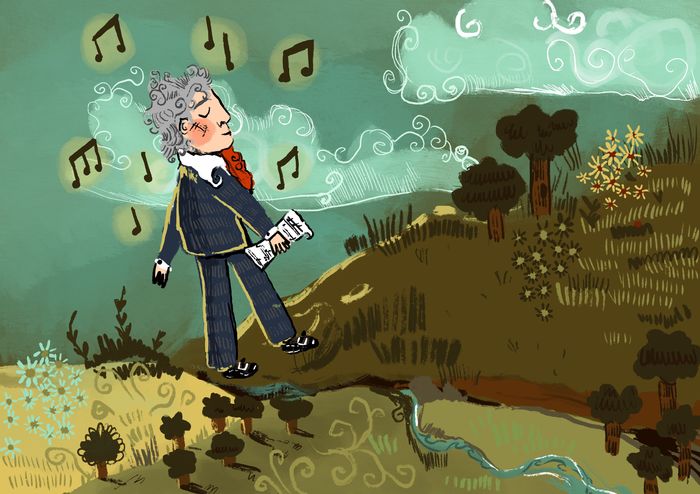The art of the study tune
Lara Glennie tells us how music can (almost) solve her essay crises

The crescendo builds, the music peaks, and Tchaikovsky’s ‘Pas de Deux’ is running through my veins as my fingers skim across the keyboard, words streaming onto the document as I finally finish the last sentence of this week’s gruelling essay. I mark my full stop just as the orchestra lulls and the track breaks into thunderous applause. Breath short, face flushed, palms sweaty, the stage lights of the Word document blaring. Anxious and bleary eyed, I hit send on Outlook. Another essay written.
The pen (or should I say the laptop) and musical instrument have always been synonymous in my, admittedly, non-musical world. I access what I assume to be the ‘musician’s high’ through the satisfaction of words pouring out, of sentences clicking, of to—do lists being ticked off, of ideas finally sinking in. Studying, moreover essay writing, doesn’t exist for me in a world not accompanied by classical ballet melodies; instrumentals to fill the silence of thinking, to diminish the intimidating empty whiteness that awaits my ideas, the consistent stuttering of my cursor drilling into the page. My two pack Tchaikovsky CD, featuring the best of The Nutcracker and Swan Lake, is well and truly worn out.
“My entire, treasured catalogue of lyricised music must be shunned for me to truly commit to work”
But even my desires have their limitations – my entire, treasured catalogue of lyricised music must be shunned for me to truly commit to work, no matter how many times my friend tries to convince me of the merits of working to background films or tv shows. Too often I have found myself singing softly as if to hide the words from the work in front of me, or lyrics weaselling their way into my essays through my distracted mind.
Yet my ever-returning friends when working, especially when reading, are film soundtracks. The length makes them perfect for tracking studying sessions, and there is something to be said about listening to the entirety of a film that is void of visuals. Danny Elfman’s Alice in Wonderland and The Corpse Bride strike the perfect balance of whimsy, drama and emotion to keep my reading sessions entertaining; Alexandre Desplatt’s ‘Little Women’ is full of the hopeful innocence that keeps away that melodramatic fear of a particular daunting to-do list; Thomas Newman’s Finding Nemo allows my brain to rest and think in the openness of the ocean (even if I may have burst out laughing at the start of ′Mt. Wannahockaloggie’). Just as films are always there for me outside of work, so too are they with me while I learn. As I write this the opening, the soaring techno pulses of Hans Zimmer’s ‘Cornfield Chase’ fill the room.
“My composers are the only real audience to my first drafts, my embarrassing first ideas, and they are there with me when I open my supervisor’s comments”
I do concede that sometimes it can take me out of my work. There are some songs that demand you to stop and listen; to de-hunch your back and take your fingers off the keys. The gap between the past paragraph and this one was spent by me sitting back and being taken over by the prowess of Zimmer, but I believe that such intermissions are not always fallibilities. While it is of course important to work hard, you also must allow yourself to pause and stop and think, to collect your thoughts. My composers are the only real audience to my first drafts, my embarrassing first ideas, and they are there with me when I open my supervisor’s comments, dread pooling in my stomach. I can always count on my music to take me away.
Want to share your thoughts on this article? Send us a letter to letters@varsity.co.uk or by using this form.
 News / Eight Cambridge researchers awarded €17m in ERC research grants27 December 2025
News / Eight Cambridge researchers awarded €17m in ERC research grants27 December 2025 News / Clare Hall spent over £500k opposing busway 24 December 2025
News / Clare Hall spent over £500k opposing busway 24 December 2025 Comment / League tables do more harm than good26 December 2025
Comment / League tables do more harm than good26 December 2025 Comment / The ‘class’ of Cambridge24 December 2025
Comment / The ‘class’ of Cambridge24 December 2025 News / Caius mourns its tree-mendous loss23 December 2025
News / Caius mourns its tree-mendous loss23 December 2025









